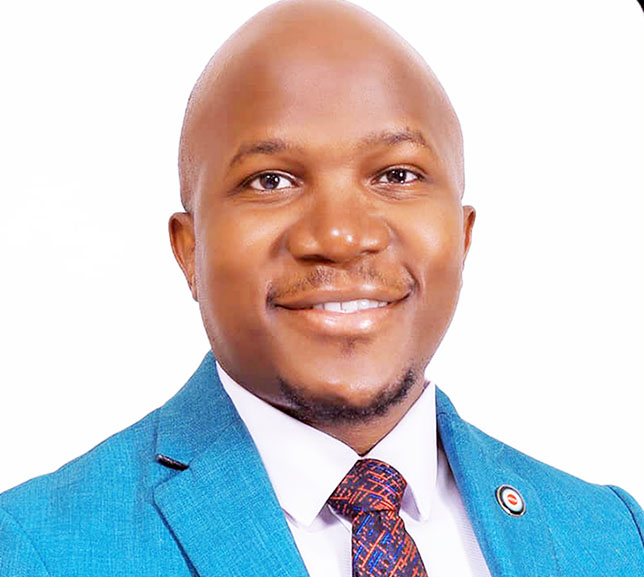KAMPALA – Once upon a time, in the bustling heart of Kampala, there stood a century-old club, a place where laughter echoed across tennis courts, where chessboards held quiet tales of rivalry, and where generations gathered not for profit, but for fellowship.
For over a hundred years, Kampala Club was more than just brick and mortar, it was a sanctuary of belonging. Members paid annual subscriptions not as a fee for services, but as a token to remain part of a living story.
Then one day, the taxman knocked at the gate. With the sharp eye of the Uganda Revenue Authority (URA), these modest membership fees were suddenly reclassified as “taxable supplies.” To the taxman, every shilling collected was no longer a symbol of loyalty; it was payment for services and thus fell squarely within the scope of the Value Added Tax Act, Cap. 349.
And so, began a legal tale: Was membership in a social club a commercial transaction like selling a car or renting a hotel room? Or was it, as the Club argued, simply the price of belonging, intangible, communal, and social?
The question rose from the Tribunal’s chambers to the High Court, where judges were asked to decide: Can fellowship itself be taxed?
Kampala Club, the appellant, is a non-profit company limited by guarantee. Its main purpose is not to generate profit, but to provide leisure and recreational facilities for its members. Since its founding in 1912, the Club has charged annual subscription fees.
URA imposed VAT on these fees, citing Section 18(1) of the VAT Act, which levies VAT on “every taxable supply in Uganda made by a taxable person.” The Authority argued that subscription fees constituted consideration for access to recreational facilities and, therefore, were taxable.
The Club disagreed. It contended that while it may be a taxable person in relation to other services, such as accommodation and refreshments, membership fees are distinct. “The payment of the fees does not satisfy the definition of ‘consideration’ as there is no direct quid pro quo for the recreational services,” the Club argued.
The Tribunal sided with URA. Kampala Club appealed.
The High Court’s Ruling
The High Court reversed the Tribunal’s decision, holding that not all payments amount to taxable supplies. It emphasized:
“A taxable supply must be made by a taxable person engaged in business, provided for consideration, and it must form part of the supplier’s business activities carried out in the course of a commercial endeavor.”
The Court leaned heavily on Section 1(k) of the VAT Act, which defines business to include any trade, profession, or adventure in the nature of trade. The judges clarified that hobby and leisure pursuits do not qualify unless they are profit-driven.
“Mere recreational or hobby pursuits, even if they occasionally yield income, do not constitute business activity,” the Court observed.
The Court also made a clear distinction between membership fees and payments for services. Referring to Section 2(h) on “consideration,” it concluded that the fees were paid for continued membership rights, not services rendered.
“The mere fact of charging subscription fees does not ipso facto equate to offering commercial supplies,” the Court declared.
Key Legal Principles Clarified
The ruling reaffirmed two foundational pillars of VAT law. First is the Business Activity Test, as outlined in Section 1(k) of the VAT Act. According to this test, an activity must be commercial in nature to qualify as a taxable supply. Purely social or recreational privileges, such as club memberships offered for fellowship, do not meet this threshold.
The second is the Consideration Test, under Section 2(h). For a transaction to be taxable, there must be a direct exchange or quid pro quo. Since membership and subscription fees are paid for the intangible privilege of belonging rather than in exchange for specific services, they do not qualify as consideration.
Based on these principles, the Court concluded, under Section 18(1), that membership fees are not taxable supplies.
Implications of the Judgment
This ruling has significant consequences for non-profit clubs and associations. It confirms that membership and subscription fees paid solely for the privilege of belonging are not taxable. However, services that are discrete and profit-oriented, such as catering, accommodation, and organized events, remain subject to VAT.
For URA, the ruling is a reminder that expanding the tax base demands precise statutory interpretation.
For taxpayers, it offers a precedent that communal contributions should not be treated as commercial transactions.
The Court’s judgment went beyond resolving a technical tax issue; it made a broader statement:
Belonging is not commerce.
“The subscription fee secures continued qualification for membership privilege, distinct from a service fee,” the Court noted.
In practical terms, the ruling shields hundreds of clubs and associations across Uganda from being burdened by VAT on their subscriptions.
In symbolic terms, it preserves the spirit of community, drawing a necessary boundary between fellowship and commerce.
Final Takeaways for Practitioners
The High Court’s decision establishes that leisure and recreational activities carried out for social purposes do not constitute business under Section 1(k) of the VAT Act. It also affirms that membership and subscription fees do not meet the definition of “consideration” under Section 2(h). Only supplies made in the course of business, as outlined under Section 18(1), are subject to VAT.
Thus, the Kampala Club v URA ruling confirms that subscription fees secure the right to belong, not to receive services.
For clubs and associations, this means they must clearly separate membership income from commercial income. They should also maintain proper documentation to support this distinction and ensure that URA respects the legal boundary between community contributions and business transactions.
Ultimately, the case restores certainty in VAT law by reaffirming a foundational principle: Not every payment is taxable, and not every act of belonging constitutes business.
The writer is a Chartered Accountant, Business Analyst, and International Tax Advisor.

